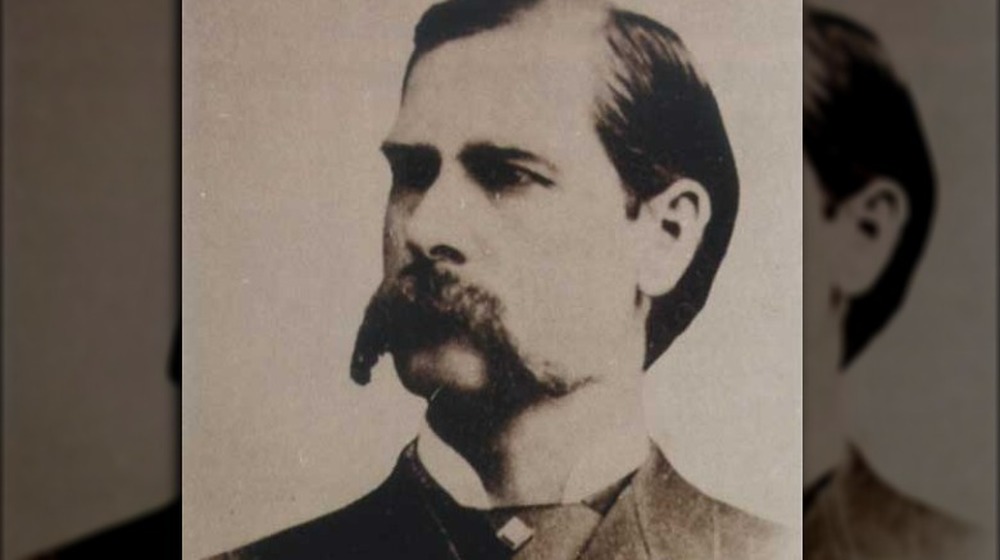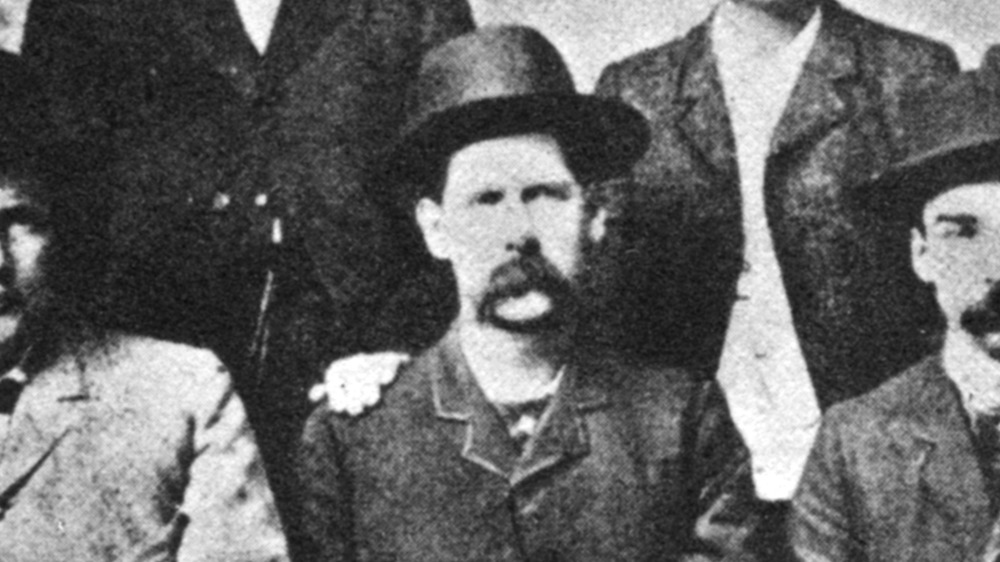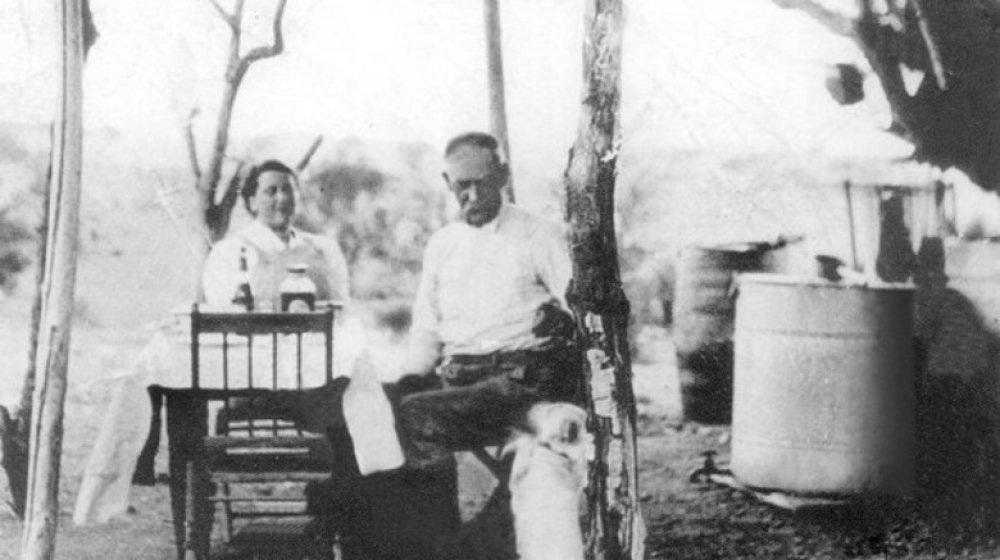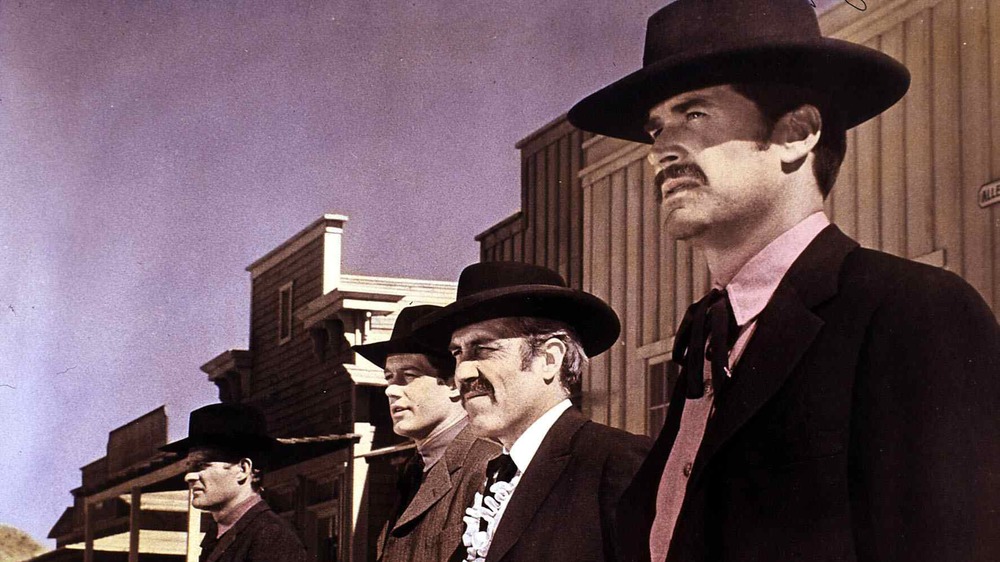The Truth About Wyatt Earp's Shady Past
Witness one Wyatt Earp. Born in 1848, according to History, he was too young to fight in the Civil War (though he tried). Not particularly well educated. Trying to find his way in the world, make a buck, maybe even more than a buck. Settle down, raise a family. His family farmed (in several places), but all reports indicate that Wyatt didn't take to that life. He left home and worked as a teamster. His first recorded shooting was in 1869, according to The Wyatt Earp Anthology — self-defense at a hotel/brothel in Illinois. Within a year he was married and had been named constable of Lamar, Missouri, where his family had settled (again). Later that year his new bride died; in 1871 he was charged with mishandling county funds and lost his constable position. And turned to horse theft. Accused with two other men, he was jailed but escaped to Illinois, where he joined his brothers working in a brothel as enforcers, or possibly bouncers.
True West Magazine relates that in 1874 Wyatt was arrested in Wichita, Kansas, for fighting, but within a couple of months was employed there as an auxiliary policeman. He held that job, and earned praise for arresting a drunk who had $500 in his pocket at the time of the collar, and still had the money when he was released. That says a lot about Earp's integrity.
Wyatt Earp had a temper
If anything, Wyatt Earp seems to have had a temper. He was arrested and fired from the police force for fighting in Wichita, and moved on to law enforcement in Dodge City for a short time. Left, returned, arrested for slapping a woman. He was fined $1 (she was jailed overnight and fined $20 for "creating a disturbance").
Earp found himself arrested again in Fort Worth, Texas, in January 1878 for fighting, but by May he was back on the force in Dodge City. And in 1879 he resigned and headed for Tombstone, where he served with his brothers, Virgil and Morgan, as a part-time peace officer. After the O.K. Corral fight he was arrested and tried for murder (but acquitted). As late as 1904 he was back wearing a badge, elected constable of Cibola, Arizona. (The vote was 9-1.) Seven years later he was arrested in Los Angeles, California, for running an illegal gambling game; he was released without being charged.
What's to be made of all this?
How should he be remembered?
Was he the stolid taciturn standard of justice? Of law and order triumphing over bandits and killers? Was he a man trying to make a living as best he could under the circumstances? He spent far more of his life working in, running, and owning saloons than he did in law enforcement. The loss of his first wife — the only woman he married legally — is sometimes interpreted as the event that sent him into a tailspin, his short period of genuine lawlessness. Stuart Lake's heavily fictional biography of Earp, Frontier Marshal was published two years after Earp's death in 1929, and in many ways established the archetype we know today.
Was he heroic? At times. Was he an opportunist? At times. Was he human? At all times. According to True West, his last words were reportedly, "Suppose ... suppose." How should we remember Wyatt Earp — or anyone? At their worst? Or their best?
Wyatt Earp's legacy
For decades since his death in 1929, Wyatt Earp has lived on in books, television, and movies. He's been famously played by James Garner (pictured above) in two different movies, Kurt Russell in 1993's Tombstone, and as Kevin Costner in 1994's Wyatt Earp, just to name a few. And that doesn't even touch on his appearances in countless westerns from the 1950s, '60s, and '70s, shows like the HBO series Deadwood, and even a couple episodes of Rocky and Bullwinkle and Star Trek. In fact, just a few years ago saw the release of a comic book and show called Wynonna Earp, which follows the demon-hunting exploits of Wyatt Earp's great, great-granddaughter. Needless to say, the real Wyatt Earp probably couldn't have predicted that one.
No matter what the movie or show, however, Earp is remembered as a tough-as-nails gunslinger, who shows grit and determination in the face of those who would do wrong against others in the Old West. Whether or not this idealized vision of Earp actually matches up to that of the man is almost beside the point. Despite a tragic life and run-ins both as the law and with the law, Wyatt Earp's reputation as a man devoted to justice is more or less set in stone — even if it is a tombstone.



